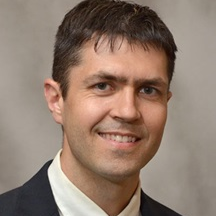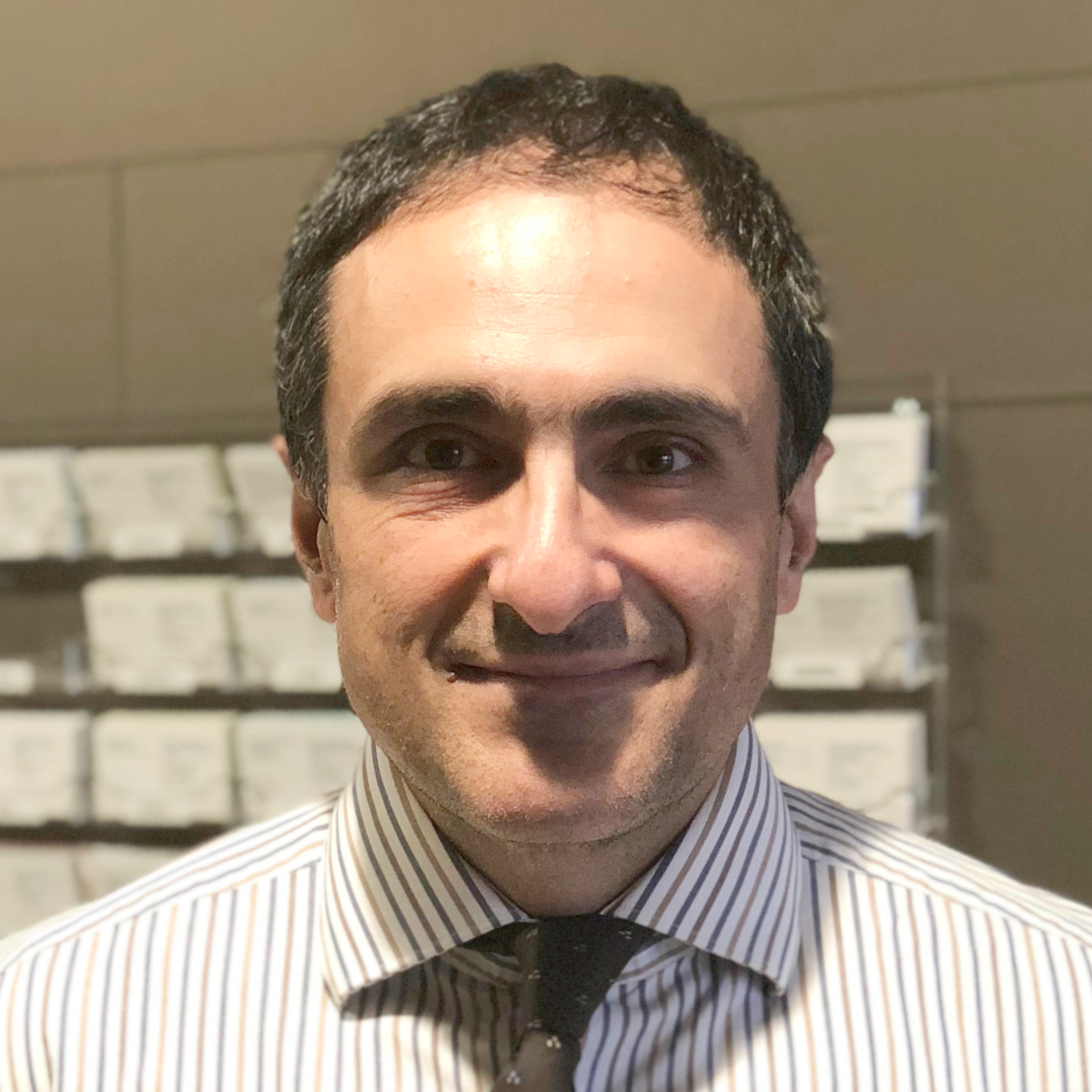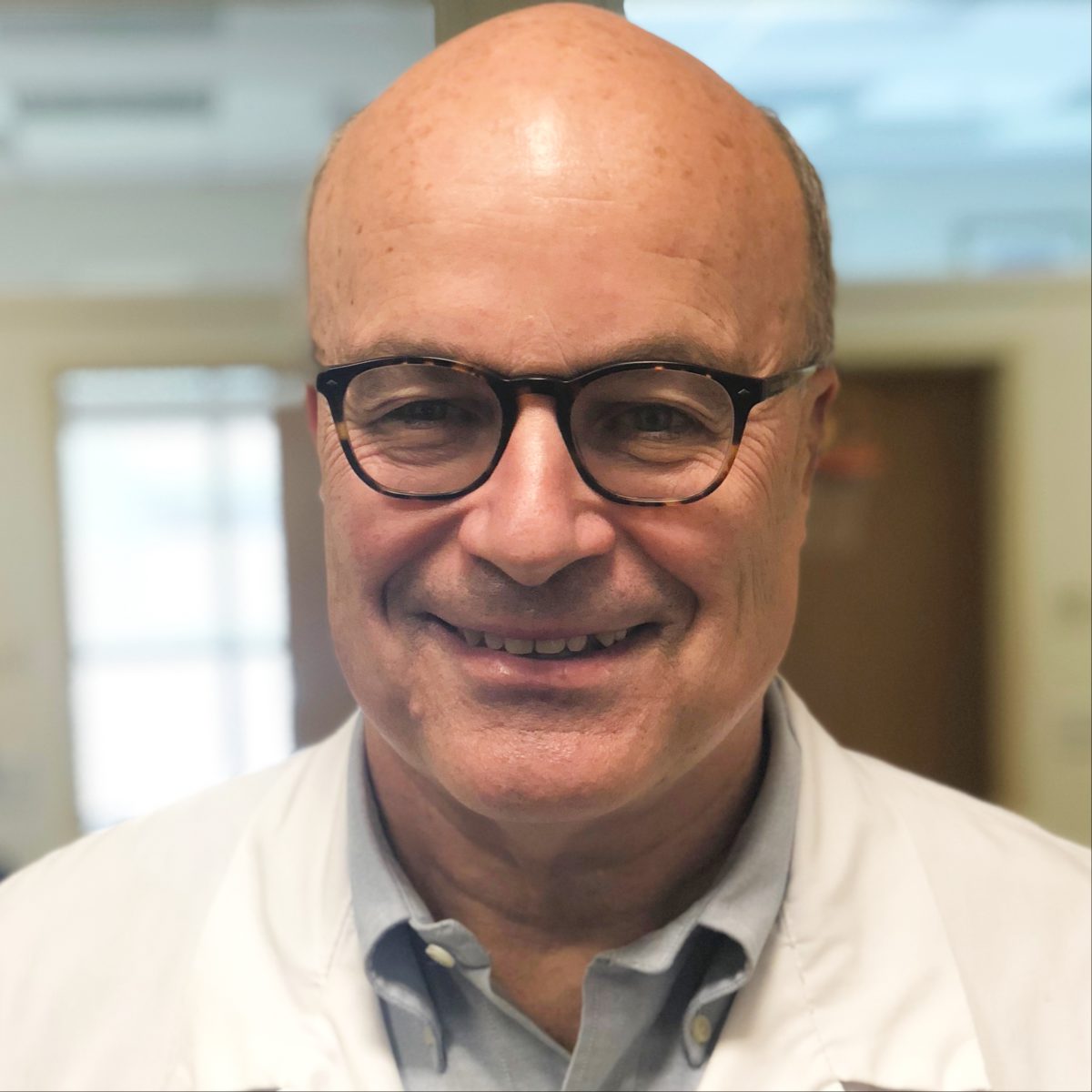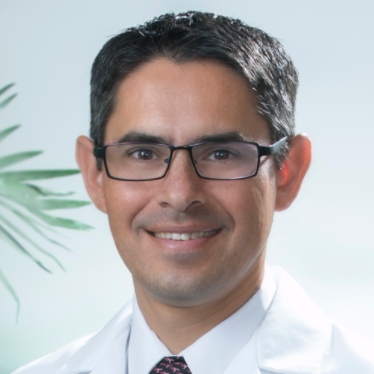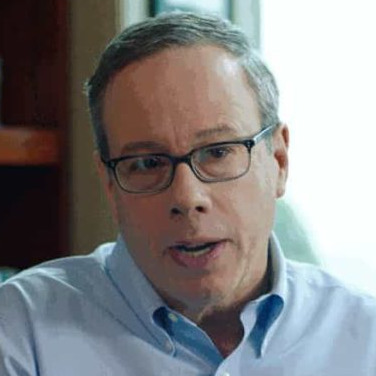Examples of Cultural Differences in Health Care
Feat. Edmund Tai, MD
Dr. Edmund Tai is a hematologist-oncologist, which means he works with patients in blood cancers and solid tumors, as well. In his 30-plus years of medical experience, Dr. Tai has dealt a lot with multicultural patients and caregivers, specifically those who are Chinese-speaking.
In this interview, he details his work as an oncologist, what patients should ask, and highlights the challenges and possible solutions when working with patients from different cultures.
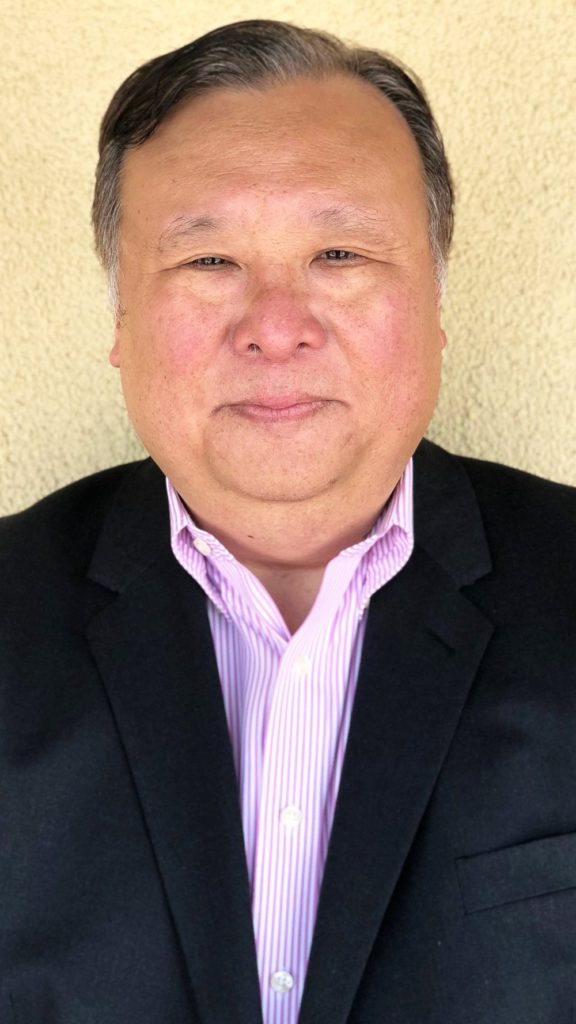
- Name: Dr. Edmund Tai, MD, FACP
- Role: Hematologist/Oncologist
- Experience: 31 years
- Sutter Health (current)
- Palo Alto Medical Foundation
- UCLA (residency, internship, fellowship)
- New Hope Chinese Cancer Care Foundation (non-profit)
- Sutter Health (current)
- Approach with patients: Direct, straightforward, to-the-point about everything. Special expertise with Chinese-speaking patients who may be unfamiliar with American medical culture.
Many Chinese patients are torn between doing the right thing and can they afford it. That is a big problem. Many of the patients we see here are not well off. They’re new immigrants so they don’t have a lot of resources, so they’re even more lost because they don’t have questions, they don’t even know what to ask.
Dr. Edmund Tai
- Your Experience as an Oncologist
- What’s your experience?
- How do you spend your time?
- How many patients do you see day to day?
- How many of the patients you're seeing are Chinese speaking?
- What can patients expect at a private practice vs. academic or different kinds of hospitals?
- What questions do patients ask most?
- You like to get straight to the point
- Dealing with Another Culture
- What are the effects of dealing with patients from a different culture?
- What types of problems do these Chinese families deal with during cancer treatment?
- The culture can complicate decision-making
- What is your advice to people in the Chinese culture? How can they get the best outcomes?
- Chinese may "value" physicians less?
- The culture can lead to more indecisiveness
- "Blame culture"
- How does the blame culture impact treatment?
- To be polite, some Chinese refrain from asking questions
- Some issues span multiple cultures
- Precautions with East v. West medicine (acupuncture)
- How do you gain trust with these patients?
- Your Advice
Your Experience as an Oncologist
What’s your experience?
I was originally born in Hong Kong. I came to this country in 1967. I went to middle school and high school here, and eventually went to Berkeley for undergrad, went to medical school in New York, and then went to my residency and fellowship in UCLA.
Then I came back up here. I was actually brought up in the Bay Area so I wanted to come back to this area very much.
How do you spend your time?
95-percent of my time is patient care. I’ve done a lot of administrative stuff, too. I used to be on the Board of Directors, Department Chair, and all that kind of stuff.
I did a few things the last few years in China as part of the American Society of Clinical Oncology (ASCO) effort to promote care in China. I mentored oncologists in China, so that was a very rewarding experience. I got to know the system there and understand the challenges that we face. In many ways, it is similar to what we face here, but even worse.
How many patients do you see day to day?
I see anywhere from 40 to 60 patients a week. About 10 to 20 percent are new patients, so I’m still seeing new patients. I see blood cancers as well as solid cancers, like breast, colon, and lung.
How many of the patients you’re seeing are Chinese speaking?
I would say about almost 25% of my patients are Chinese, and about half of them speak exclusively Mandarin or Cantonese. I speak Cantonese fluently, so I can talk to them.
The Mandarin I’m learning and I can speak it, but the understanding of what they respond with is not so easy, so I do rely on interpreters, as well as family members. I think that is interesting. As time goes on, I meet more and more people from mainland China from all walks of life, and all levels of education.
They seek me out. There were not that many Cantonese-speaking people who were oncologists outside of San Francisco. I was one of the few. And then I start seeing a lot of Mandarin-speaking patients.
I do recognize there’s a lot of cultural attachment to this, it’s more than just language. Sometimes they are perfectly able to speak English, but they still come to see me.
That’s why I accumulate a lot of Chinese patients in my practice, more so than my colleagues.
What can patients expect at a private practice vs. academic or different kinds of hospitals?
Number one is that generally the doctor you see at our private practice is a general person. So we deal with hematology, oncology. We’re not very narrow.
In academia, you might see the doctor who specializes in breast cancer or lung cancer or whatever, but they don’t do anything else. We do everything else. I think that it gives us a better feel for how to take care of patients in general.
The academic doctors tend to be more narrowly focused. They’re experts in their field. They know everything there is to know about that disease, but they’re often times in the trenches, so to speak. They give directions.
The professors are very busy doing research and so they don’t spend every day of their lives taking care of patients. And that’s why they go into academia.
Whereas for us, I do teaching and research sometimes, but not that much. That’s why I said 95-percent of my time is spent taking care of patients. That’s why when the patients come to see us and we start them on treatment, it’s a beginning of a very long and complex journey.
The treatment can take anywhere from a few months to years. And then you have to map out, think, anticipate what the problems are gonna be and how to treat the patient.
Then you also have to keep up with what’s new. A lot of the treatment is similar to before, but there have been modifications, and so you have to adopt those modifications to your practice. That’s what we do.
A lot of patients sometimes get desperate because they’re not doing well. They hope that they’ll find some magic bullet, so they go somewhere else. We often are the recipients of these patients. And those are difficult.
Many of them really are not doing well and they’re not going to do well because the treatment that we have to offer is not that much better than what we already have.
But this is how I look at what we do. Sometimes we’re there with the patient in the beginning, and sometimes they go to UCSF and then come back because there’s no more clinical trials for them.
We’re the ones who are there to deal with that. There are always people who want to go to UC or Stanford, they just want to go to a big place. But then people oftentimes want to see me either as a second opinion, or they want to switch care to me because they we communicate a lot better.
In private practice, things are different than in the academics. I think you’re a lot closer to patients. You’re more personally responsible. And I think a lot of times you go see a big professor but you may never see him very much. The day-to-day care is usually not done by the professor. So that’s the difference.
What questions do patients ask most?
What stage do I have? I understand they don’t know, but the gap of knowledge is becoming wider and wider because there have been more and more scientific advances. I have to start from scratch, but now it’s a longer road to get to. Sometimes I cut to the chase because it’s overwhelming for them.
I have to gauge what the person can tolerate in terms of understanding. I tell them what they need to know so they can make a decision, and it’s joint decision-making.
Most things are, and that’s a big problem in China. There’s no joint decision-making.
You like to get straight to the point
I used to try to skirt around it and I found out it really doesn’t do any good. You just have to push, and I think that a lot of it is people’s discomfort.
People are afraid for themselves, partly, so they don’t want to get bad news. But really, life is about bad news. How you deal with it is what makes a difference between a good and bad outcome.
We’re all going to die of something, but the question is that when you have something that can kill you soon, then you better make some decisions. You almost have to sell this program to people, and so that’s a lot of what goes on in the very beginning. In fact, the medical decision about what to do takes five minutes. It’s all this other stuff that takes 55 minutes.
Even when I walk in the room, I know what they’re going to do, but I need to convince the patient that that’s what they should do because it’s the best chance for them to get well.
A lot of times people are afraid, so they want to take an incremental approach. I say, “No, that’s not how you treat cancer.” Your best chance up front is to do something. If you kind of do it, this gradualism-type thing, it does not work. That’s old thinking.
I think that’s because of the lack of education. People are still thinking in the 50’s. The kind of questions I get is what you see in the U.S. in the 50’s and 60’s.
Dealing with Another Culture
What are the effects of dealing with patients from a different culture?
The cultural layer runs extremely deep. What happened is that traditionally Chinese people are not very trusting. The institutions that they’ve been exposed to are not very friendly.
So the experiences in the family, and they get passed on from generation to generation, [have] been pretty negative. Asia has never been known to cater to the patient, not patient-friendly in terms of health care. And the resources are limited so the outcome is typically very poor.
Many Chinese patients with a similar disease as the ones we see here die a lot quicker.
And why? It’s because sometimes they don’t take the advice. They don’t do the treatment that we do. Sometimes they couldn’t get the treatment that we do. They couldn’t afford it. There’s a lot of out-of-pocket cost.
So in Chinese culture it’s sometimes like having cancer leads to basically the bankruptcy of the whole family because they’re trying to treat that person.
It’s become so overwhelming to the family. They feel like, “Oh, mom she’s just 85 years old. You still have to do everything possible to treat her.” But the chance of her doing well is very poor. And they don’t want to hear anything else. So that’s another driving force that’s very difficult for people.
First of all, they don’t understand about cancer. Cancer’s a complex disease and the education level sometimes is too low and people were never exposed. Even PhD people [in China] don’t have much understanding of biology. They’re usually technical, the engineering, physics, that kind of thing, math. But not very much biology.
That’s why sometimes I don’t really care what PhD you are, sometimes their understanding of things is very poor in terms of biology, and human biology especially. That’s a fundamental problem, too. So I have to spend the first time I meet them to try to explain what they have.
We do drop-in sessions here at New Hope Chinese Cancer Care Foundation and the biggest problem we see sometimes is the understanding of what they have is poor. They really don’t understand. They just want to hear “what stage do I have,” “how long do I have to live.”
Very basic, very gross kind of estimations which are not always accurate. I think that they appreciate that someone would actually talk to them, which is not always possible in the academic institution because they’re too busy. There are too many patients. And I think that we have to explore all possibilities.
I think that many Chinese patients are torn between doing the right thing and whether can they afford it. That is a big problem. Many of the patients we see here are not well off. And they’re new immigrants so they don’t have a lot of resources. They’re even more lost because they don’t have questions, they don’t even know what to ask.
So what we try to help them with is, “Okay, go and talk to your doctor about these situations more specifically.” They don’t see us as a team effort. That’s the whole problem. So they don’t see their oncologist as their advocate necessarily. I think that’s a fundamental difference.
Another thing is that people have a lot of family issues. Now, I’m sure they have family issues in other cultures too, but with Chinese family issues oftentimes there’s a lot of bad feelings among family members.
Under the stress of cancer, it all comes out. And it becomes a conflict in and of itself. I’m sure other cultures is the same thing, but because I know the Chinese culture more I can see it more vividly. People share that with me.
What types of problems do these Chinese families deal with during cancer treatment?
One of the most common problems is there’s no communication within the family, or there’s a lot of barriers. The Chinese people believe you don’t want to give bad news to anyone. It might make them feel bad.
Well, unfortunately, I tell families, I cannot treat the patient if the patient does not know they have cancer. I refuse to because that’s not fair, because we do a lot of stuff to them, and how can you tell them they don’t have a problem, right?
And then they feel sick, and then you have to ask them, was this because of the treatment? Here in the U.S. when we give chemo, you have to sign consent. How is that possible if they don’t know they have cancer?
I usually tell them right up front, I have to talk to the patient. The patient has to understand what they have, because otherwise, this is not a partnership. If she doesn’t trust me or I don’t trust her, then how can I actually function? I think in China everything is compartmentalized.
‘Oh, you can just do your thing and we can do our thing.’
Well, that’s really not how it should work, and that’s why there’s a lot of bad outcomes, because patients give up too early because of side effects. They won’t tell people about it, but they suffer in silence. That’s a bad, bad, problem.
A lot of what we do, why we’re so successful, is because we deal with a lot of the side effects. Patients don’t die of side effects. They die of cancer not responding to treatment.
That’s a different thing. Side effects we can control, and we have ways to deal with it, but they have to work with us. That’s where I find time. I look at this as what you call “radar jamming.”
I need to burn through the jamming to get to the patient so that he or she can tell me what’s wrong.
The culture can complicate decision-making
I think the Chinese society is very hierarchical. The people on top control everything. The person on top has, basically, an overwhelming veto power over everything, so if they say no, then it doesn’t matter what’s right or wrong.
I think that when kids are brought up, they’re brought up to respect elders’ decisions, although most of us don’t really tell our parents what’s going on. We learned very early on, you can’t tell them because they don’t understand, they don’t have the same understanding or acceptance. So we do what we want anyway.
Parents pretend [nothing happened]. We pretend we accept their decisions, and they pretend that their wishes have been followed. But that’s a lot of this pretending thing going on in Chinese culture.
I see this in other cultures, too. We’re not the only ones, although Chinese seems a little bit worse. Then sometimes, like the elder sister, has unusually strong sway of a decision compared to the younger sister. Even if the younger sister is much better-educated. That happened in my wife’s family. We see this kind of thing over and over again.
Sometimes I don’t know how these people relate to each other. They might hate each other, right? Or they may not. But I think there’s a lot of this. It’s like the old Confucian philosophy that the man in the house call the shots, and the elder people have more say than the younger people.
It was kind of a cultural thing that’s encouraged because it allows you to control society better, otherwise there’s chaos. I understand why it was done, but now of course in America, that kind of thing, it doesn’t fly.
What is your advice to people in the Chinese culture? How can they get the best outcomes?
I think that most important is have open conversations, which oftentimes does not happen in the Chinese family. I mean, you really speak your mind. Fundamentally, when you do a collaborative thing, you have to speak your mind.
You have to tell people what you don’t like or why you you don’t wanna do this, and then there’s sometimes a very good reason not to do this, but it has to be understood. And it’s not, “You’re resisting my authority.” See, then it becomes authority versus compliance issue as opposed to what’s the best thing to do.
I think that many families are very loving and they want the best for the family, but they’re also afraid of the unknown. Like they say, “Oh, do you have to have chemo? I hear that’s so dangerous.” I said, “Well, dying from cancer is dangerous, too,” so you have to kind of compare the two. I think the problem is most families who’ve had experience with cancer are better because they went through this before, but for many people, it’s the first time, and that’s a very difficult. That’s true for all cultures.
Chinese may “value” physicians less?
I think it’s interesting because in Mainland China, I found out that people don’t value knowledge. They don’t value why you do something. They just want you to do it. So sometimes I’ll prescribe drug that’s very new, and it’s available only in the U.S. and so they want to get it. They don’t really care about the expertise it took to get to that point. And they don’t value knowledge.
Which explains a lot of things. I think that because they’re brought up in the system where that is not emphasized, the status of physicians is very low in China compared to here. I think it’s rising, but it’s not the same level.
You don’t have the same level of trust if you take a survey. There’s a lot of paranoia, “Oh, the doctors always want to make money and milk you dry for you, to treat your disease.” That I see, too, is a culture issue.
And, unfortunately in China, because there’s often times no standards in the regulation, there’s a lot of bad people out there who take advantage of people. So that is not a rare experience.
I think if they have a chance to talk to me and open up and discuss, then they will usually get convinced. I can convince most people about what to do. I think that, but they have to be willing to open up. And sometimes it takes more than one visit.
The culture can lead to more indecisiveness
I would say 60- or 70-percent of older Chinese patients are afraid to make decisions.
They’re afraid to do the wrong thing. But of course, you know, not doing anything is just as bad. That is a decision. That’s why a lot of this needs to be an open discussion and I encourage people to do that.
I like to talk, so I don’t mind talking. But, not all oncologists are like that. Sometimes [oncologists] will try to keep a distance and say, “Okay, this is my recommendation, take it or leave it,” kind of thing. I think that’s why it’s a very tricky process.
It’s much more nuanced than anybody ever thought. It’s not cut and dry. It’s not a book, open up to page five, column two, this is what you treat. No, there’s a lot more to it than that.
“Blame culture”
The Chinese always say, “Oh, you are responsible.” When bad things happen, who cares who’s responsible? It happened, right? But to them it’s very important that they identify who’s responsible. So that’s a blame culture issue. If they don’t have that person to blame, then there’s no closure.
But to us [in the medical system] the closure is not the blame with the culture. We blame the person, but look at the system. And in which those problems occur. Because without that you cannot get better.
How does the blame culture impact treatment?
In making decisions, everybody’s afraid to stick out and say, “We should do this.” They don’t want to be blamed. “You’re the one who said we should do this.” That paralyzes decision making.
I have to burn through that. The way to deal with that is say, “You have a sense of urgency here. We don’t have three months to burn through this. You have to make a decision this week. Either you’re going to do it or not.”
I think there’s time when you can delay decisions, but I don’t encourage that either, because most delays don’t lead to better decision-making. It’s just delayed decision-making.
That comes to the trust. If you trust that someone is doing something for you that’s going to be very good, then you want to do it right away. If you’re not sure that this person is doing it for all the right reasons, then you may not want to be so eager to adopt.
To be polite, some Chinese refrain from asking questions
In Chinese culture, it’s almost seems impolite to talk to too much. I’m sort of the exception. Even when I was younger, I never held back and raised my issues. In Chinese culture, a lot of the time you just don’t.
That’s why when I ask my patient, “Is everything okay?”, they say, “Yeah, everything is good.” Then you ask the family, “Is everything okay?”.
Then out comes the thing. “Oh no, no, it’s not okay. The patient’s having problems with A, B, C and D.” So sometimes you have to kind of gauge what answers you get, are they truthful or not?
I see it in China, I see it in Taiwan, I see it here, that people are afraid to stick out and to say this is my decision, that we should do this.
I remember one of my professors had to go to Taiwan to see a liver cancer patient. The patient is the son of a very powerful politician. So he went and sees the patient, and he came back and talked to the patient and the family and said, “There’s nothing you can do. This is really bad.”
Then after the patient had gone, he went and talked to the original doctor to say, “Why are you flying me all the way from US to Taiwan? You and I know both know this is end stage.” They said, “Oh, it’s okay because it’s easier for you to say it than for us to say it.”
There’s a lot of that. It’s very interesting. So we try to do the best we can and try to be empathetic and compassionate, but it’s hard when this is the first time you meet someone, right?
But I see that affects decision-making and you make multiple decisions throughout the course of your illness and some are important in the very, very beginning, what you do. And I think that makes it harder. It’s not impossible, but it just makes it harder.
Some issues span multiple cultures
It’s difficult. I think you can ignore it, but then you’ll probably settle for a lesser outcome. It’s not possible to end this in every culture. I understand that that.
I don’t pretend to understand the Iranian culture or the Arabic culture, but there’s certain things that are common in human experience, and communication is very, very important, [as is] having patients make their own decisions.
I say, “Look, you’re doing this for you. You’re not doing this to please your son or daughter or your mom. You do what’s best for you.” You have to start from that.
If you’re not doing that, then you’ve got a problem, right? Then you’re not doing things that [will really] help you. I think that with most families it’s okay unless there’s internal conflicts.
I see conflicts as when one family member or two come with the patient, we talk about it and everything is okay. Then suddenly I get a phone call from another person who is in the same family but who wasn’t there and wants to do something different. That tells me already there’s a conflict, and those are difficult to deal with.
That’s why we need to work through those things, but it’s hard, right? If you don’t even speak the language, you don’t even know there was a conflict. The patient just “fires” you and you go to somebody else.
I think it’s important to emphasize open communication. If you cannot connect with the patient right from the beginning, you better get help – and get good help.
Precautions with East v. West medicine (acupuncture)
Some Chinese don’t trust acupuncture either, so they do both. They want to cover the bases. They don’t know which god to pray to, you don’t want to miss out. That’s a tendency for many people to think that Chinese medicine is magic.
And I say, “There’s no magic.” I asked my colleagues in Hong Kong, “How many percent of people take Chinese medicine on top of your chemo?” They said, “100%.”
I tell people, “I’m going to tell you, during the chemo, please do not take other things, because I don’t know whether those things are interfering or causing a problem that has nothing to do with the treatment.”
You hate to stop a treatment because of a side effect that is really not due to that treatment. This is where the trust probably comes in. I know that they take stuff, they all do. Acupuncture is very safe. But when they start talking about herbs, that’s not so safe.
There’s no quality control. Nobody knows what’s in those herbs and it’s very scary actually. But people take it on faith that it’s going to be good for you. In a way, Chinese people are very smart, but they’re also very impressionable.
You just say, “Oh, this is good for you, take this,” and they will. You’re skeptical about what I do, but why aren’t you skeptical about what this is? Because it’s something they can relate to better.
There’s a lot of – can I be a little bit more blunt- bull shit out there that is totally wrong and it doesn’t have basis. But it’s being promoted by a lot of people and unfortunately, I’ve seen the horrible outcome because people believe in those things.
How do you gain trust with these patients?
The first thing I tell my patient, I inoculate them a little bit, and say, “If someone comes to you and says you should do this, without knowing what you have in detail, then disregard it.”
I mean, what do they know, right? What do they know about your circumstance? If they don’t know it, they don’t care enough to find out what your problem is, they just want to push a product, then it’s really not going to be helpful. That’s one way that I approach it.
I have a patient who had stomach cancer. He wanted to visit his family in Hong Kong before he started treatment. While he was there, they wanted him to see this “miracle doctor.” The guy is a Chinese herbalist.
So he saw him and said, “Oh okay. I think you have this and I’m going to give you this. And then come back to see me in the month and see how you are.” This [patient]is a pretty smart guy. He says “Well, I’m not going to take it and see what happens.”
So he went back a month later, and the guy said, “Oh you are much better.” He said, “Wait a minute.” So that’s obviously ridiculous. There’s no real evaluation, there’s no scientific evaluation of what’s going on. They just evaluate purely by saying.
Yet people are so impressionable. That’s true for a lot of other cultures too, not just Chinese culture. It’s dangerous. But I can’t control all of those things.
There’s no authoritative people who do Chinese medicine. I mean, I talk to the good Chinese medicine doctor that I trust, and they said most of what they do is supportive. They don’t have any magic cures either.
Because actually, cancer is not in the lexicon of Chinese culture. They don’t have the scientific thinking of health, it’s is about balance. It’s not about molecular biology and genetics and stuff like that, which is what is really happening now.
So it’s our job to help bridge [the gap]. Because, how would they bridge this? They don’t even know this stuff. It’s really hard.
Your Advice
Have a consistent point-person
We insist on that. Who’s going to actually be responsible for helping take care of him or her on a day-to-day basis? That person needs to be involved. They’re the one that has to change their schedule, take the person to their visits, and deal with what to anticipate in terms of side effects. Those are all important.
We do extraordinarily well in terms of outcome, but it’s the effort that you make for that individual patient that matters.
Message for younger generation of American-born people who are caregiving for Chinese-speaking relatives?
I think the real issue is communication within the family. Where are we? Are they telling [the truth]? Are they discussing the problem or are they not? That’s important.
Sometimes the expectations are totally unrealistic. They think, “Oh, it’s a 90-year-old woman, but we’ve got to keep treating her.” She’s already had dementia and had this and that and is already a disaster to try to even take care of on a daily basis. How can we possibly throw in something like chemotherapy or radiation unless it’s going to cure her? But even that’s not likely.
It’s a lot to go through. Sometimes even Caucasians have trouble, sometimes, in families. Do they communicate with the caregiving team that they’re provided? Usually it’s me and my nurse who take care of them, but we have to be kept informed of what’s happening.
Message for other physicians unfamiliar with the Chinese culture
If the patient doesn’t speak English at all then it’s really difficult because you have to rely on a translator. Now, preferably there’s somebody in the family who can relay to the patient because it’s tough to have a translator who just translates words. It’s not an easy thing.
We see the same problem with Russians. They come from a similar situation, very bad health care system and no trust of institutions. And some of them, the Russian patients, want to get drugs from Russia. They don’t trust the ones in the U.S.
I think that I understand this just because I see patients for so long, I remember all the pitfalls that we often run into. And sometimes what gets you is the stuff you don’t even know. So to have a culturally sensitive [approach] is not easy. They can be very, very difficult.
You just have to be consistent. Don’t hold out false hopes. You have to be realistic. Also, it’s hard to understand a little bit what the issues are. Many of these Asian patients don’t drive so they have to take buses to come to your clinic. And it’s not an easy thing.
I tell people, “Yeah, you can go to UCSF but you live down here.” That’s a really long trek if a treatment has to be done every week. This is a huge trek. And then what’s going to happen if or when something goes wrong? Who’s going to take care of you? You have to call the doctor at UCSF. Good luck. Because you’re not going to get the doctor who saw you, not likely available. So that’s why I also temper the expectations, what they can expect.
Sometimes people go to institutions because in China they have this belief that the bigger the university is the better the treatment, which may be true unfortunately, because that’s where most of the resources are concentrated at.
In the US though, it’s much more diffused so you don’t have to go to Sloan Kettering in New York to get the best treatment. And I think that that’s a difference. I think that usually we, in one hour, try to get them to trust me and to have a common understanding of what the problem is. And then we can move forward. That’s for any patient.
But the language barrier and the culture barrier can be overcome if the urgency is there. You can just tell the family, “Look, if I don’t treat her, she’ll be dead in three months.” Okay? So let’s start with that. So that means the decision has to be now.
Under those circumstances, very rarely I would say people say, “Don’t treat.” Or I can say, “There’s nothing more we can do.” If they don’t accept that, then they go to somebody else. That’s what usually happens.
Resource: New Hope Cancer Center
Note: Dr. Tai works once every two weeks answering questions for Chinese-speaking patients at a non-profit called New Hope Chinese Cancer Care Foundation in Milpitas, CA.
What we’re trying to do is to try to make a small dent in this information gap. It’s a huge gap. Sometime it’s acceptance, sometimes understanding. Sometimes both. And I think that for them we represent [hope]. .We don’t charge people for this. We don’t sell any products.
We’re here just purely for information. And we’re not trying to run their case but we want to find what they don’t understand and work from there. Because if their [understanding] is not there, then they’re not going to make good decisions.
“Ask an Oncologist” session
It’s an idea that I got from Breast Cancer Connections where they basically invite people to come ask doctor any questions. Usually it’s a specialist. So I find this is something I can do.
For two hours every other Wednesday I will be here. People come and ask all kinds of questions for me to answer. I will address them at the least. Now sometimes I don’t know [the answer] but rarely. I usually can try to help them understand what their problems are. How to focus their way of thinking. My job is to tell them, okay go back and ask your doctor this specifically.
What are the most common questions at these sessions?
They don’t even know what they have. A patient might have metastatic cancer of the brain and say, oh, I have a brain tumor and I have lung cancer. No, you have one disease. You don’t have two diseases. And that’s why the treatment has to address that.
It’s so fundamental. I think some people really have a hard time with this, from the patient side. And then sometimes people kind of focus on the minutiae, which is probably not the most important.
What’s your top advice for patients and caregivers of different cultures like Chinese?
We want to promote open discussion. Without that, it’s really hard to move forward. In U.S. society we used to be very reluctant to talk about cancer in the fifties, sixties. You don’t mention the “C word.” But over the years, because of patient advocacy and our profession’s understanding of the disease has changed, now we talk about survivorship, that people live a long time, even that they don’t die of the cancer, they still have to live with the ravages of it.
Now, U.S. society and most places, not all, have accepted that. Also they understand that we are really trying to do what’s best for them. That takes both parties to engage. I think that’s where we should go. We’re not talking about hospice yet, we just talk about fundamental doctor-patient relationship, and I think that in Asian culture that needs to improve.
Most Asian people are astounded that I would talk to them to the degree that I do. In China, the expectation is you spend ten minutes and you never really get all your questions answered. They just tell you, just do this, that kind of thing.
Patients are living longer than ever. Sometimes people live way beyond our expectations, but we still have to live during that time.
And I think there’s a lot of hope now with what we do scientifically, as well as clinically. We can do a lot more than we ever used to be able to. I think that it’s sometimes scary to read about cancer because the outcome is so bad historically, but those are changing rapidly.
So it’s important to keep your options open, talk to the doctors openly, and ask questions. If you don’t get the answer you’re looking for, keep asking.
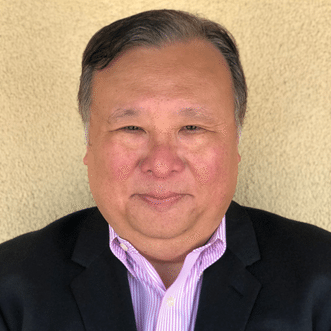
Oncologist Interviews
Dr. Christopher Weight, M.D.
Role: Center Director Urologic Oncology
Focus: Urological oncology, including kidney, prostate, bladder cancers
Provider: Cleveland Clinic
...
Doug Blayney, MD
Oncologist: Specializing in breast cancer | HER2, Estrogen+, Triple Negative, Lumpectomy vs. Mastectomy
Experience: 30+ years
Institution: Stanford Medical
...
Dr. Kenneth Biehl, M.D.
Role: Radiation oncologist
Focus: Specializing in radiation therapy treatment for all cancers | Brachytherapy, External Beam Radiation Treatment, IMRT
Provider: Salinas Valley Memorial Health
...
James Berenson, MD
Oncologist: Specializing in myeloma and other blood and bone disorders
Experience: 35+ years
Institution: Berenson Cancer Center
...
